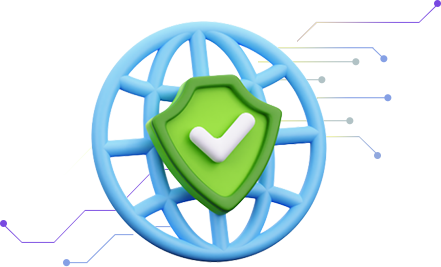We may earn a commission from some of the brands featured here, which can affect how their listings are displayed.
Advertising Disclosure
theprotectionguru.com is a free online resource that strives to offer helpful content and comparison features
to our visitors. We accept advertising compensation from companies that appear on the site,
which impacts the location and order in which brands (and/or their products) are presented,
and also impacts the score that is assigned to it. Company listings on this page DO NOT imply
endorsement. We do not feature all providers on the market. Except as expressly set forth in our
Terms of Use, all representations and warranties regarding the information
presented on this page are disclaimed. The information, including pricing, which appears on this
site is subject to change at any time.
Picking the Right VPN for Your Needs
No two VPNs work exactly alike. Some pack in reinforced protection protocols and a few set themselves apart with strict no-log policies or fancy extras like split tunneling. We’ve done the homework for you, digging into how each VPN handles security, speed, ease of use, and bonus features.

Our Ranking Approach
This site features companies that may provide us with compensation. Placement, ratings, and rankings are influenced by multiple factors, including company performance, popularity with visitors, reputation, and compensation. Not all companies available in the market are included. Compensation may impact how and where a company or product is displayed.
Fast, affordable VPN with strong encryption, unlimited bandwidth, and worldwide servers.
- AES-256 encryption
- 30+ servers worldwide
- Unlimited bandwidth
- No-logs policy
- Easy setup
- Streaming-friendly
NordVPN delivers top-tier encryption and advanced security features that protect you from hackers, ads, and data leaks worldwide.
- Threat Protection
- Ad & Tracker Blocking
- Secure Browsing
- Lightweight Interface
- 10-Device Support
- Breach Scanner
Who Needs a VPN?
The quick reply is ‘anyone who wants to keep things private.’ But what counts as privacy on the internet? More than you’d expect.
A VPN is for people who don’t want their browsing tracked by their internet provider, advertisers, or even hackers on public Wi-Fi. It’s also for travelers who want to access their favorite shows abroad, remote workers who need secure connections, and anyone who values an extra layer of protection for their personal data. In short, if you go online and especially if you use public networks, a VPN isn’t just nice to have, it’s a smart move.
What online threats can a VPN help with?
Data snooping
ISPs, advertisers, or even hackers can monitor your browsing. A VPN encrypts your traffic so they can’t peek.
Public Wi-Fi risks
Coffee shops, airports, and hotels are hacker hotspots. A VPN shields your connection on unsecured networks.
Identity theft
By hiding your IP and encrypting data, VPNs make it harder for cybercriminals to steal personal info.
Tracking & profiling
Advertisers and websites build profiles based on your activity. A VPN masks your location and browsing habits.
Geo-restricted access
While not exactly a “threat,” being locked out of content abroad is frustrating. A VPN lets you bypass those limits safely.
Man-in-the-middle attacks
VPNs block attackers from intercepting sensitive data, like logins or payments.
Free VPN vs. Paid VPN
Free VPNs give you the basics: they encrypt your traffic, hide your IP address, and let you browse with more privacy than going unprotected. For casual use, like checking email on public Wi-Fi or masking your location once in a while, a free VPN often does the job. Many also work across devices and support popular browsers, so you get the core experience without spending a cent.
Paid VPNs, however, are generally more reliable. They offer faster speeds, stronger security protocols, unlimited bandwidth, and more server locations worldwide. They’re less likely to log your activity or sell your data, and they usually come with extras like 24/7 support, multi-device connections, and advanced features such as ad-blocking or anti-malware. For frequent users or anyone serious about privacy and streaming, those upgrades can make all the difference.
VPN Features Explained
AES-256 encryption
Military-grade encryption that scrambles your data so well, even supercomputers can’t crack it.
Split tunneling
Lets you choose which apps or sites use the VPN and which connect normally—handy for streaming or banking.
Double VPN
Routes your traffic through two VPN servers instead of one, doubling up on privacy and security.
No-logs policy
Means the VPN provider doesn’t keep records of what you do online—your browsing stays your business.
Meshnet
Connects your devices directly through the VPN, so you can share files or play games securely with friends across the globe.
Port forwarding
Lets you open specific connections through the VPN, useful for gaming, remote access, or faster torrents.



